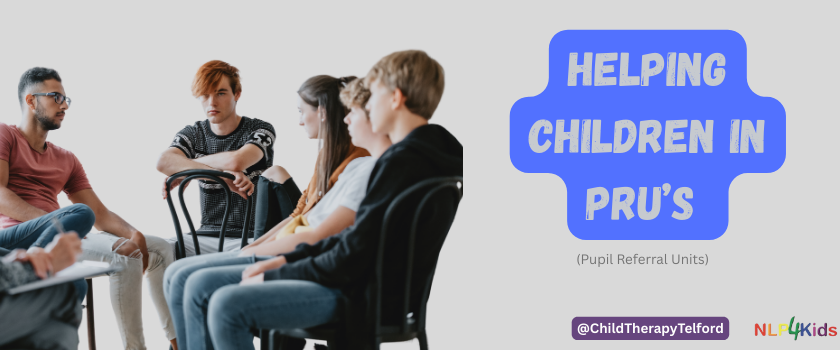Helping Children in Pupil Referral Units

Insights from the Director of NLP4Kids: Helping Children in PRU’s (Pupil Referral Units)
In a recent article by the director of NLP4Kids, a practitioner shared their experiences working in a boys’ school where many students faced anger and mental health challenges. These issues had significantly disrupted their lives, often leading to school changes, involvement with social services, or even youth offending teams.
The aggressive behaviours displayed by these boys were often rooted in unexpressed emotions related to family separations, parental neglect, bereavement, or past abuse.
During my own work with children, I have noticed similar patterns. Many boys would struggle with simply entering the classroom on some days, while on others, they would express their thoughts bluntly, without considering how their words might impact those around them. This lack of filter can make it difficult for educators to be seen as emotional supports, as they must also be respected as authority figures.
Despite these challenges, these boys have the potential to reintegrate into mainstream education and become responsible citizens. However, evidence suggests that a holistic approach is essential. We must look beyond merely managing their behaviour; it is crucial to understand the underlying reasons for their actions and equip them with emotional coping strategies.
Engagement can often be particularly challenging for these students, especially when they feel vulnerable—typically at the moments when sensitive topics arise or when aspects of their personality are spotlighted. The key here is gentle persistence and offering them a choice in their participation, which helps them feel more in control.
If they perceive engagement as forced, they are likely to resist.
It’s important to remember that gaining the trust of these young people is not an exact science, as various factors can influence their willingness to participate. They need to know that we will not abandon them, regardless of how they may react.
By learning to manage their challenges, these boys can focus more effectively in the classroom, free from the distractions of inner turmoil. This focus can lead to improvements in both behaviour and academic performance, significantly enhancing their chances of reintegration into mainstream education.
Socially, as they begin to understand what constitutes aggressive or provocative behaviour, they will learn about the consequences of their actions. This awareness enables them to make more informed decisions about their interactions, fostering coexistence and reducing chaos in their environments.
For children who lack the necessary support, traditional education methods may not be sufficient. They require assistance in confronting and resolving their issues to prevent them from falling through the cracks of the education system or resorting to harmful behaviours.
The support offered by NLP4Kids can greatly enhance their ability to communicate their thoughts and feelings, leading to more meaningful relationships rather than destructive ones. This, in turn, can improve their employment prospects and overall financial stability. Moreover, the skills they develop will contribute to a healthier lifestyle, encompassing all the positive outcomes discussed.
In my opinion, implementing such a holistic approach not only benefits the individual child but also enriches the community as a whole.
https://childtherapytelford.nlp4kids.org

The original version of this article was written by Gemma Bailey, director of www.NLP4Kids.org. It was republished and rebuilt with additional content by Louisa Gauld-Crichton – Child Therapy Telford. https://childtherapytelford.nlp4kids.org
Leave a comment
This site uses Akismet to reduce spam. Learn how your comment data is processed.

Leave a Reply